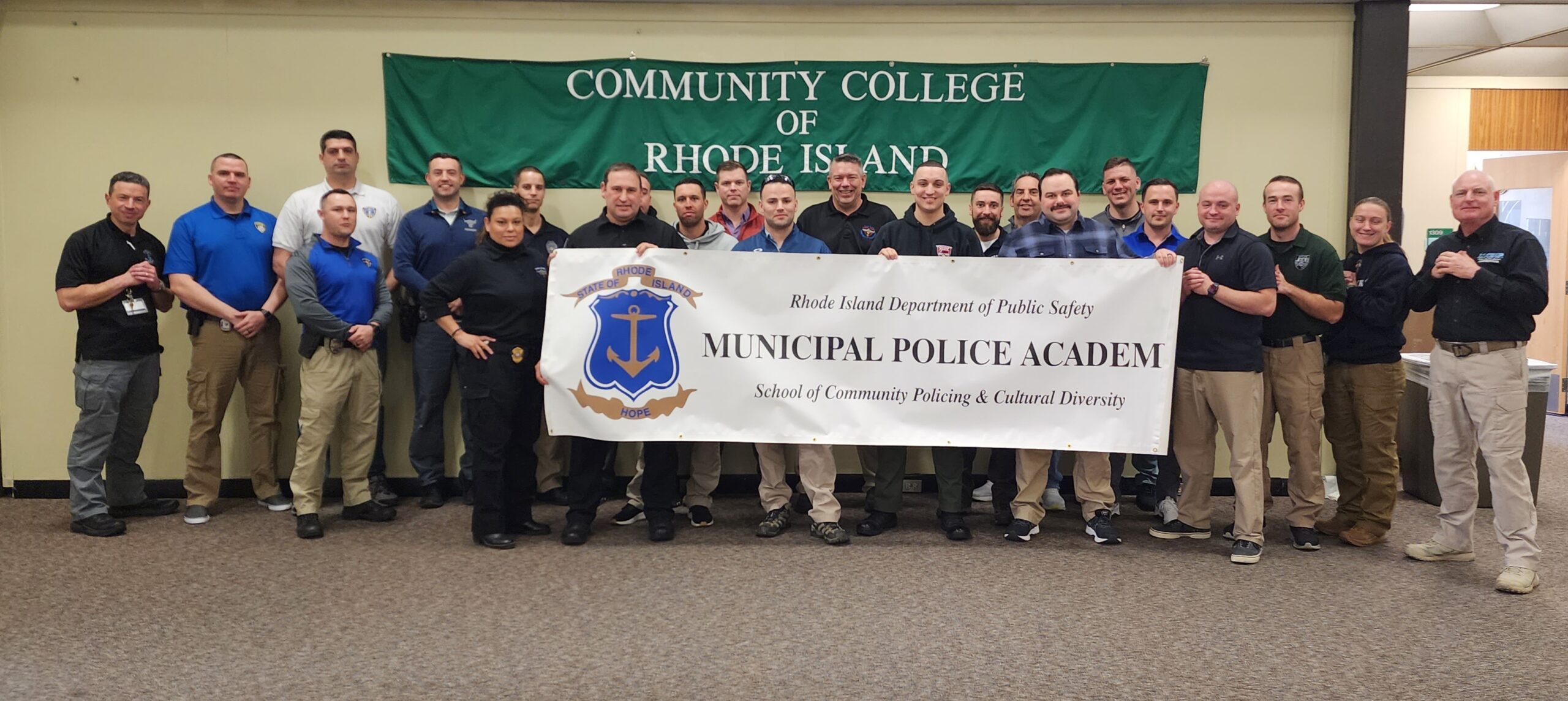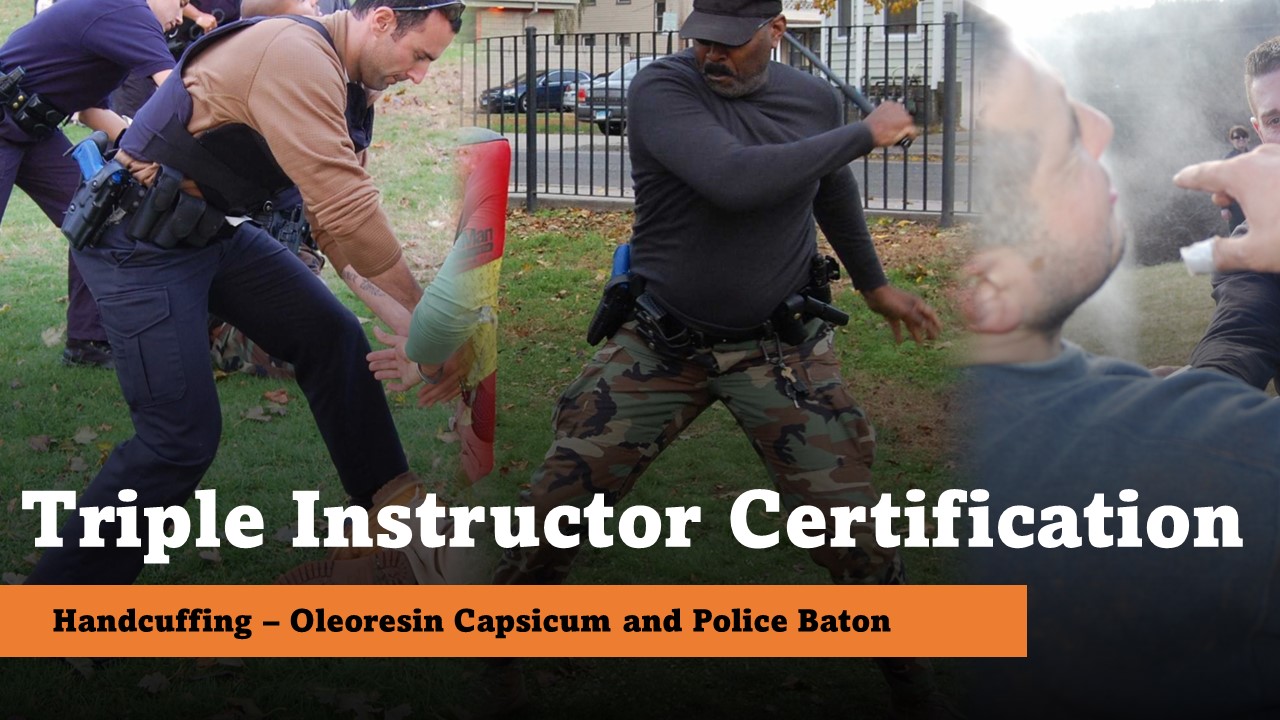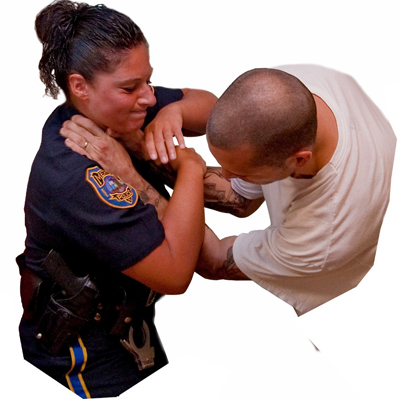Fairfield CT University Hosts L.O.C.K.U.P. Triple Instructor Certification Handcuffing - O.C. Spray & Expandable Police…

RI – L.E.A.D.S. Active De-escalation Strategies with Use of Force Coaching for Field Training Officers
Rhode Island Municipal Police Training Academy
Hosting
L.E.A.D.S. Law Enforcement Active De-escalation Strategies with
Use of Force Coaching for Field Training Officers
March 23 – 24, 2022
0830 – 1630
It was a pleasure and honor to be able to present our professional development program – L.E.A.D.S. Law Enforcement Active De-escalation Strategies with Use of Force Coaching for Field Training Officers March 29 – 30, 2023 to the officers of Rhode Island, Massachusetts and CT. The training was extremely well received, and all the officers participated actively during the mentally challenging 2 day program. The officers displayed high levels of enthusiasm, dedication, and professionalism throughout the course. A review of the course evaluations revealed an overwhelmingly high satisfaction rating from the attending students of the course.
SPECIAL THANK YOU to the Rhode Island Municipal Police Training Academy for the trust and support.
This what the attending students had to say:
Please rate the overall presentation. 17 out of 20 students, evaluations collected rated this course presentation at the highest level – Excellent, 3 rated it very good.
- Great presentation, will recommend it to the department.
- Excellent
- Kevin (Lt. Dillon)is enthusiastic and keeps you engaged very knowledgeable and informative from on the job experience.
- High quality
- Excellent qualities. Teacher kept the class focused while incorporating valuable skill sets in addition used anecdotal stories throughout to help resonate knowledge.
- Direct correlation to day-to-day duties. Clear and up-to-date knowledge and reasoning provided. Practical and useful training
- A+
- Great training, with an enthusiastic and knowledgeable instructor
- The presentation was well informed with up-to-date information.
- Information organized and thorough.
Was this program relevant to your work assignment? 18 out of 20 students, evaluations collected rated this course presentation at the highest level – Excellent, 2 rated it very good.
- Very relevant I oversee use of force incidents and this helps with my evaluations.
- This will help me when I bring it to department when training FTO.
- Yes
- Patrol and FTO
- Working in corrections requires de-escalation on a daily basis
- Yes, great in-depth overview for the career and FTO program.
- Very relevant
- Very relevant, as verbal skills can help reduce multiple negative aspects such as stress, use of force, litigation and confidence overall.
- Practical in all aspects as a patrol officer
- Extremely relevant, verbal communication and body language can save your life
- Yes as an F TO and supervisor it hits both areas.
- Yes. This training block allowed for one to better understand how to deescalate incidents.
Please comment on the instruction of this program. (Training aids, multimedia etc.) Was this program relevant to your work assignment? 18 out of 20 students, evaluations collected rated this course presentation at the highest level – Excellent, 2 rated it very good.
- I enjoyed posted posters and stories from the instructor
- Excellent
- Good videos to show real examples. Examples of court cases and report writing is beneficial. limited amount of time given for presentation. Regardless well organized and great visuals
- Instructor was clear and very informative
- Slideshow in booklet for references but mainly stories, videos, and real life applications to help retain the knowledge.
- Visual aids were very helpful
- I’m a visual learner and this presentation consisted of plenty of visual learning tactics
- Very knowledgeable on the material and the laws that support his methods
- Good videos that we are able to see and break down
- Instructors ability to engage classroom audience is the best I have ever seen
- Great use of multiple types of training aids to reach different styles of learning PowerPoint and videos were excellent
- Each broken down and easily digested
Would you recommend this training to other officers? 11 out of 14 students, evaluations collected rated this course presentation at the highest level – Excellent, 3 rated it very good.
- All the officers should be sent to this for use of force refresher.
- I would recommend to all police officers
- Yes
- It would help prevent a lot of use of force situations. Teach unknown techniques that are very useful
- Leadership, command staff, and fellow officers
- Not just officers! Supervisors and executive staff as well.
- Yes
- Highly recommend
- I would recommend this training to everyone regardless of years of experience, background etc all officers should attend
- 100% times over
- Absolutely
- Very good for all officers
- Yes. I believe this class should be mandatory for all officers
- Yes. I feel as though each PD should be sending their officers to this training. That way, each officer can be on the same page during all calls for service.
Please assess the instructors of this program. Instructors – Lt. Kevin Dillon
19 out of 20 students, evaluations collected rated this course presentation at the highest level – Excellent, 1 rated it very good.
- Instructor did a great job at maintaining my focus /attention the whole time.
- Excellent, very knowledgeable very knowledgeable about topics. Open to discussion and differences of opinions.
- Always amazing, thorough training, so much great information and very dynamic.
- K.D. (Lt. Dillon) knows this and teaches this better than any other class I have attended.
- K.D. is excellent and enthusiastic constructor
- Instructor was extremely knowledgeable and has a way of explaining information that has efficient absorption
- Instructor knew the info and we’re able to communicate the info very efficiently
- K.D. is passionate and knowledgeable. He was an incredible teacher very knowledgeable
- K.D. is a mastermind in his craft. He has an uncanny ability to breakdown scenarios and discuss things so everyone can understand and relate to
- If I could rank higher than A5 I would. The knowledge examples data used to portray in relay the information is fantastic very good for all officers
- K.D. kept the block of instruction entertaining and kept my attention the use of personal experience and examples made the info easily understood and which scenarios it applied to.
Please explain how this training will enable you to change or improve your present assignment?
19 out of 20 students, evaluations collected rated this course presentation at the highest level – Excellent, 1 rated it very good.
- I will attempt to improve body and language in how to speak to individuals
- I can take what I have learned to teach to my trainees but cannot cause change for all patrol which may be necessary
- Change the way we train classes, however with time allotted for our recruit training not sure if it would be sustainable. So much to cover with recruits and need more time to develop neural imprints.
- Will incorporate portions of this training to our existing training program.
- Gives you a different perspective relating to how to approach on the job situation and doesn’t just bare training of the norm which is taught by Department Academy
- info will help better train new officers
- I will humble myself on every aspect that I have been policing not efficiently in insert this with my work in life
- Allowing myself the time and the means to effectively change a person’s intent by making the interaction about them and having them make the decisions
- It highlights the importance of de-escalation and reminds me of the crucial aspect of documenting de-escalation and reports
- Ability to use points to bring up in roll call training
- Learned a lot of information I can bring back to my PD de escalation will continue to be my sharpest and most efficient tool on my belt
- Gives me new ways in looking at these topics and new ideas for interdepartmental training
- Making other officers come to training
Today every use of force incident is scrutinized frame by frame on a video and judged by untrained individuals creating distrust and false narratives. Our Field Training Officers are our PRIMARY coaches and INSTRUCTORS but are often not any more trained in de-escalation and use of force than the recruit they are training. De-escalation strategies, use of force mitigation, analysis, investigation, and training is a complex continually evolving issue. This 2-day training session is designed for Field Training Officers. The training will examine how to apply de-escalation strategies in the real world, how to document those de-escalation tactics, and force mitigation strategies. How to make use of force decisions, select appropriate actions and report accurately.
The L.E.A.D.S. training program is a nationally recognized program reviewed and approved by the United State department of Justice.
Section I
- Understand how implicit biases can affect perceptions and behavior.
- Identifying indications of hostility through body language
- Develop skills and tactics to reduce the influence of bias on police practice.
- Learn and understand the value of tracking service in law enforcement
- Learn how to avoid communications that may be negative and make positive
- Learn methods of effective verbal de-escalation strategies
- Understanding physiological changes during aggression
- Learn to use cognitive limitations for active diffusion
- Learn methods to re-direct the thought process through positive direction
- Learn the importance of emotional intelligence in law enforcement
- Communications and response to Special Populations
- ( example – mental illness, autism, and other disabilities)
- Identify evidence-based characteristics associated with excited delirium
- Identifying Agitated Chaotic Events
- Learn methods of motivational interviewing skills
- Learn use of force definitions and proper terminology
- The application of the Fourth Amendment to use of force
- Constitutional Force Standards
- Three essential steps in use of forces decision making
- Define serious use of force areas
- Discuss officer behavior and accountability issues
- Discuss de-escalation strategies and how to report it
- Discuss human attention and how it relates to use of force
- Discuss use of force tracking, trending, reporting and analysis
- To apply force application to police report writing
- Discuss Electronic Control Weapons issues trends and training
- Discuss adaptive thinking and decision making
- Discuss Quantum of Force and how it apply to force options
- What information do you want to track and how will it be used
- Discuss factors needed for analysis of a use of force incident
- Quantifying use of force deployments
- Coaching de-escalation techniques
- Instructing and coaching methodsFEE ONLY $ 395.00
REGISTER
Course Flier
Contact :Stephen A. Lombardi
Director of Continuing Education
Rhode Island Municipal Police Training Academy
1762 Louisquisset Pike
Lincoln, RI 02865
Direct Line: 401-205-1678
Main Line: 401-205-2500
www.rimpa.ri.gov


